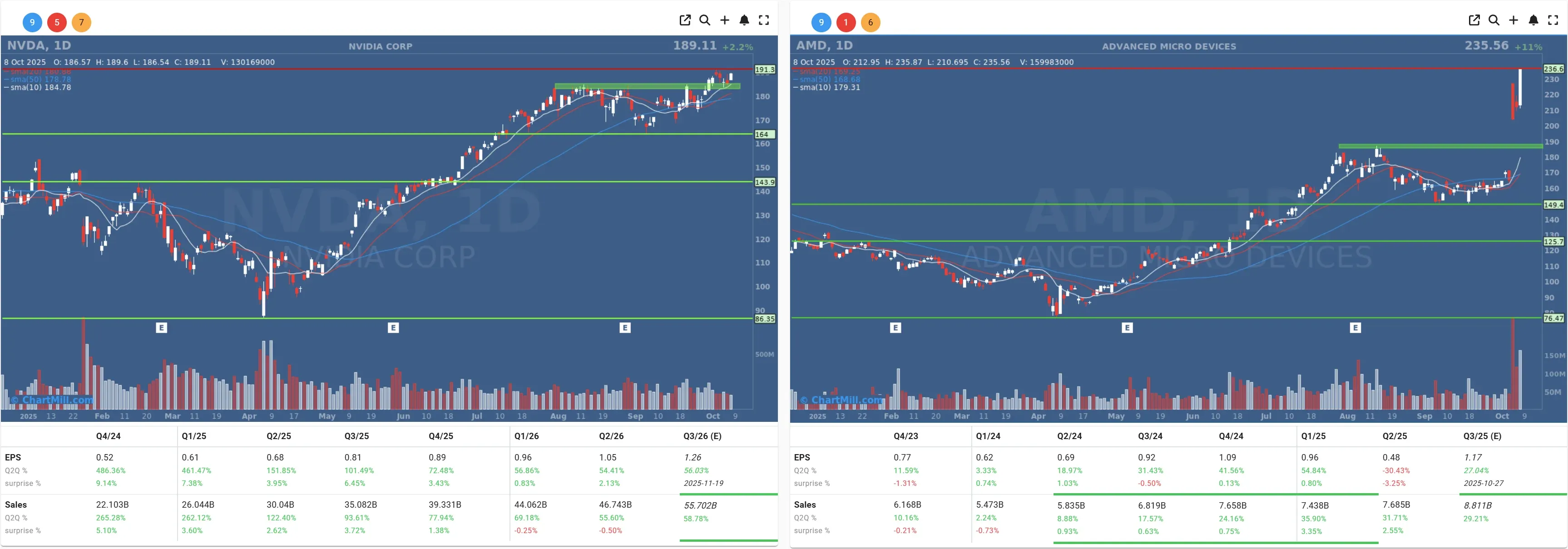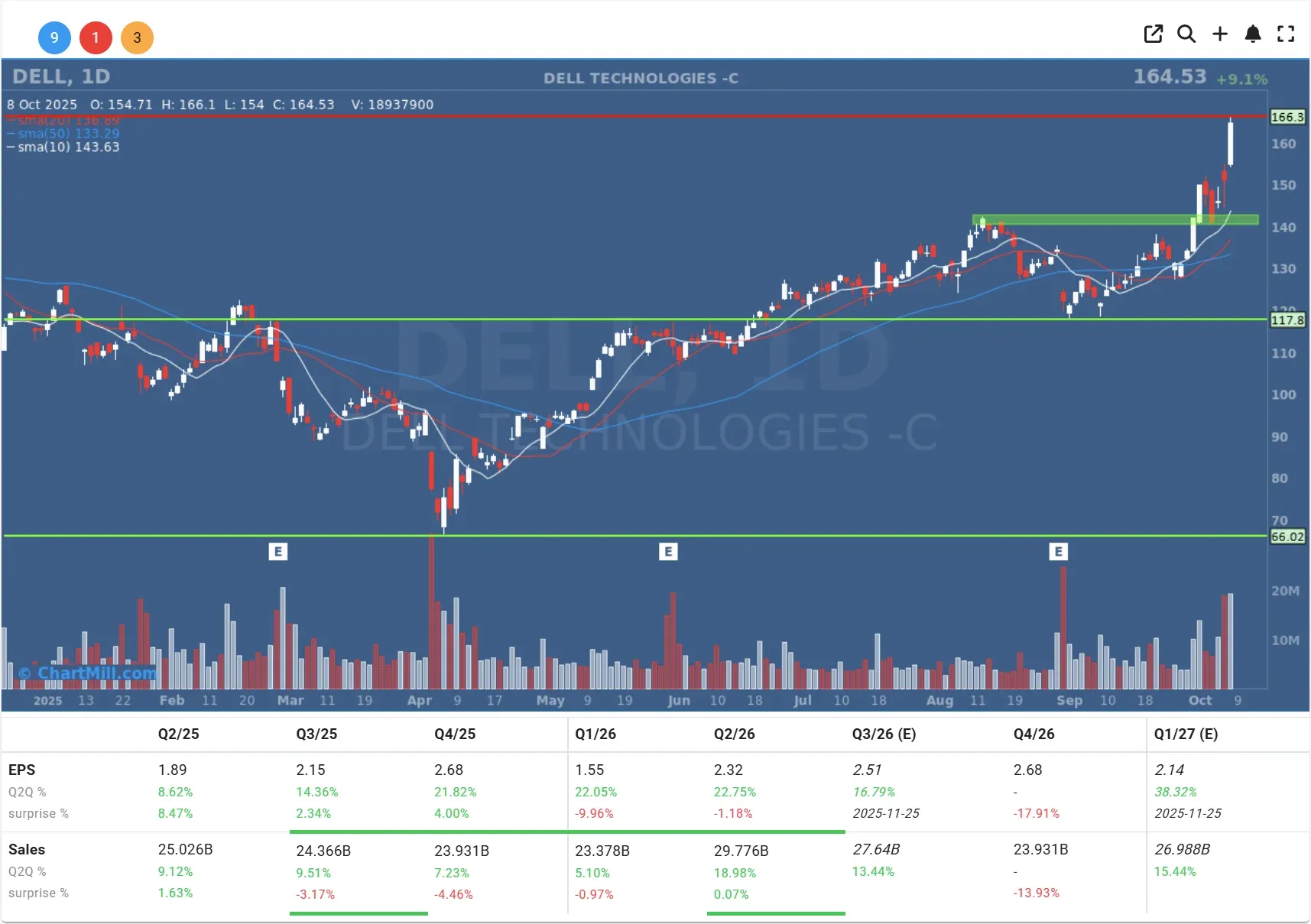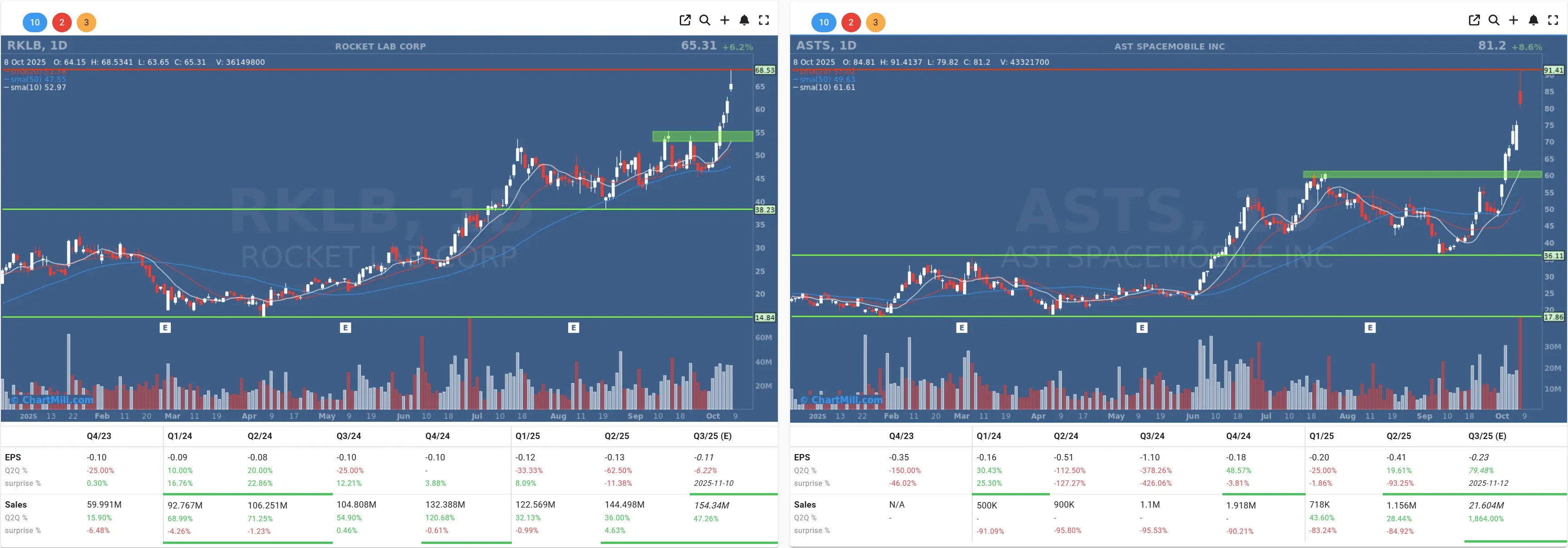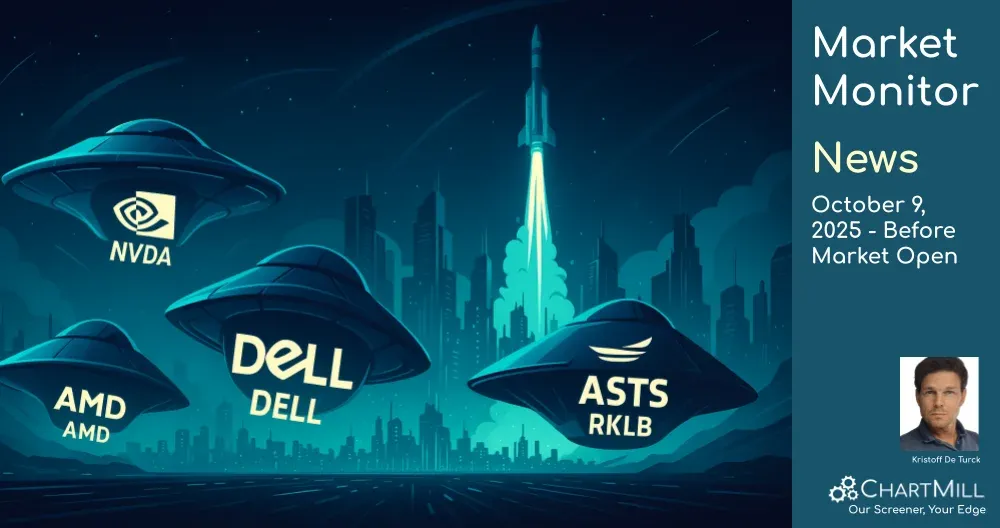
AI Keeps Driving Wall Street
Some parties just don’t seem to end and that certainly applies to the current AI rally on Wall Street.
Nvidia (NVDA | +2.2%) and AMD (AMD | +11.37%) once again pushed the Nasdaq higher, fueled by upbeat comments from Nvidia CEO Jensen Huang.
In an interview with CNBC, Huang said confidently: “The demand for our Blackwell chips is enormous. We’re at the beginning of a new industrial revolution.”
Investors loved it. Nvidia’s revenue growth shows no signs of slowing down, though there are legitimate concerns about the so-called “circular deals,” where Nvidia pours billions into customers like OpenAI or Elon Musk’s xAI, which then use those same funds to buy Nvidia chips. It sounds a bit incestuous, but as long as the music plays, Wall Street keeps dancing.
AMD, which earlier this week announced a multibillion-dollar deal with OpenAI, extended its impressive run. The stock has surged roughly 43% since Monday, not bad for a company that spent years as the underdog in the chip race against Nvidia.

Dell (DELL | +9.05%) also benefited from the AI craze. After gaining 3.5% on Tuesday, the stock jumped another nine percent. Apparently, investors believe the demand for AI servers isn’t cooling anytime soon.

Investors Shrug Off Political Noise
Meanwhile, nobody seems to care about the U.S. government shutdown, now entering its eighth day. There’s still no budget deal in sight, yet markets hardly blinked. The latest Fed minutes confirmed that one or two rate cuts are still expected this year, exactly what investors wanted to hear.
The Dow Jones remained flat, while the S&P 500 closed slightly higher. The message seems clear: as long as rates are heading lower and AI keeps the spotlight, Wall Street’s party goes on.
Gold Breaks $4,000 (and It Might Just Be the Beginning)
Aside from AI, gold grabbed attention by breaking above the $4,000 per troy ounce threshold, a symbolic milestone investors have been eyeing for months.
Goldman Sachs now expects prices to reach $4,900 by the end of 2026, citing ongoing geopolitical tensions and falling real interest rates.
Oil (WTI | +1.1%) also climbed, despite U.S. crude inventories rising far more than expected. Apparently, the market is willing to look past that as long as global demand remains steady.
M&A Buzz and Earnings Warnings
Beyond the AI headlines, a few other companies made waves.
-
Confluent (CFLT | +7.57%) surged after Reuters reported that the company is exploring a potential sale, a clear signal of M&A activity in the sector.
-
At the opposite end, Penguin Solutions (PENG | -16.02%) tumbled following weak revenue figures and a gloomy 2026 outlook. That comes after an 8% drop on Tuesday — not exactly a winning streak.

There was also excitement in the space industry:
-
AST SpaceMobile (ASTS | +8.63%) jumped after announcing a partnership with Verizon to provide satellite-based mobile service.
-
Rocket Lab (RKLB | +6.18%) gained on news of a new commercial launch contract. The “final frontier” is trending again.

My Take on the Market
What strikes me most is how immune investors have become to macro and political risks. A government shutdown dragging into its second week? No problem. Rising oil inventories? Who cares.
As long as AI keeps the dream alive, nobody seems eager to wake up. Still, I’d personally tread a bit more carefully here. The mix of euphoric valuations and “circular” financing structures reminds me uncomfortably of 1999, and we all know how that story ended.
Kristoff - ChartMill
Next to read: Market Breadth Bounces Back — But Underlying Strength Still Questionable





